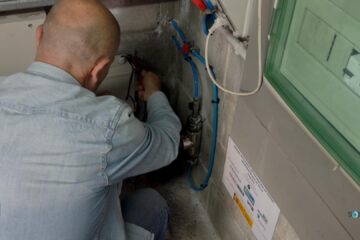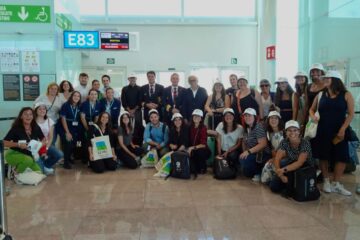(Barcelona, Spain) – Air pollution has risen to become the second largest health risk for children globally, trailing only malnutrition as the largest. Alarming statistics reveal that an estimated 2,000 children under the age of five succumb to air pollutants daily. On a wider scale, air pollution ranks as the second leading cause of death around the world, surpassed only by high blood pressure.
The primary culprits are small airborne particles, particularly PM2.5, which account for approximately 90% of air pollution-related deaths. These microscopic particles have been linked to a range of serious health issues, including lung disease, heart disease, stroke, and even miscarriage. The urgency to implement preventive and remedial actions to purify our air has never been greater.
Real-time air quality monitoring is crucial in combating this growing threat. It is essential to detect not only particulate matter but also volatile organic compounds (VOCs) and harmful bacteria, both indoors and outdoors. Sens Solutions has stepped up with advanced technology to address this need which also includes participating with InChildHealth, a research project aimed to identify determining factors of indoor air quality that impacts schoolchildren.
The company’s AMR-S3DP and Aero-S3DP sensors are sophisticated air monitoring devices capable of detecting particulate matter, VOCs, and various bacteria. These devices, coupled with continuous monitoring services provided by Sens Solutions, enable real-time assessment of air quality. Given the dire health implications of air pollution, such technology is indispensable for businesses, facilities, and areas at high risk of contamination.
As air pollution continues to claim lives at an alarming rate, particularly among young children, the deployment of advanced monitoring technologies represents a critical step towards safeguarding public health.
Co-funded by the European Union. Views and opinions expressed are however those of the author(s) only and do not necessarily reflect those of the European Health and Digital Executive Agency (HaDEA). Neither the European Union nor the granting authority can be held responsible for them.
InChildHealth is receiving funding from the European Union’s Horizon Europe research under grant agreement 101056883, from the Swiss State Secretariat for Education, Research and Innovation (SERI grant agreement 22.00324), from the United Kingdom Research and Innovation (UKRI grant agreement 10040524), and from the Australian National Health & Medical Research Council (NHMRC grant agreements APP2017786 and APP2008813


